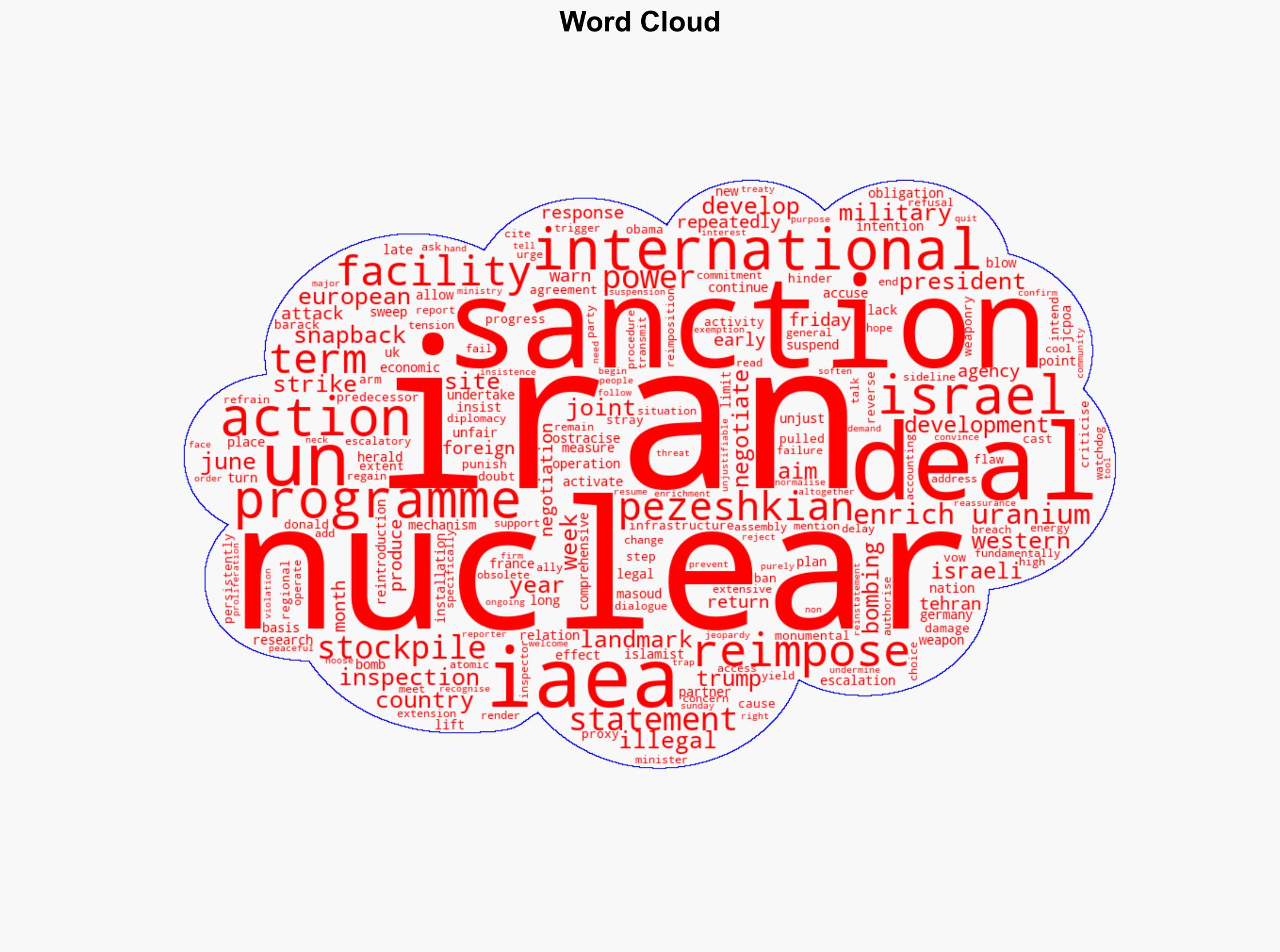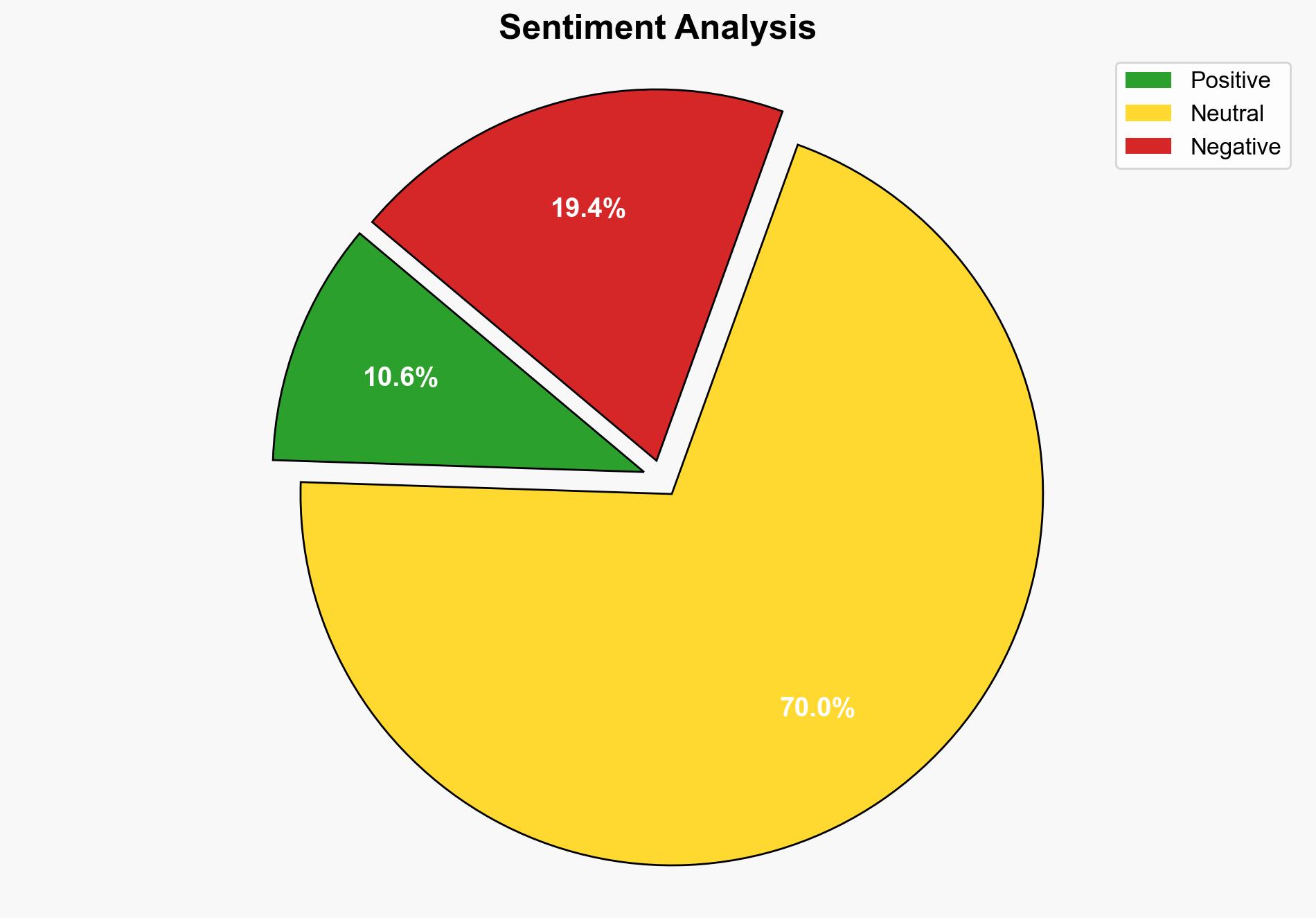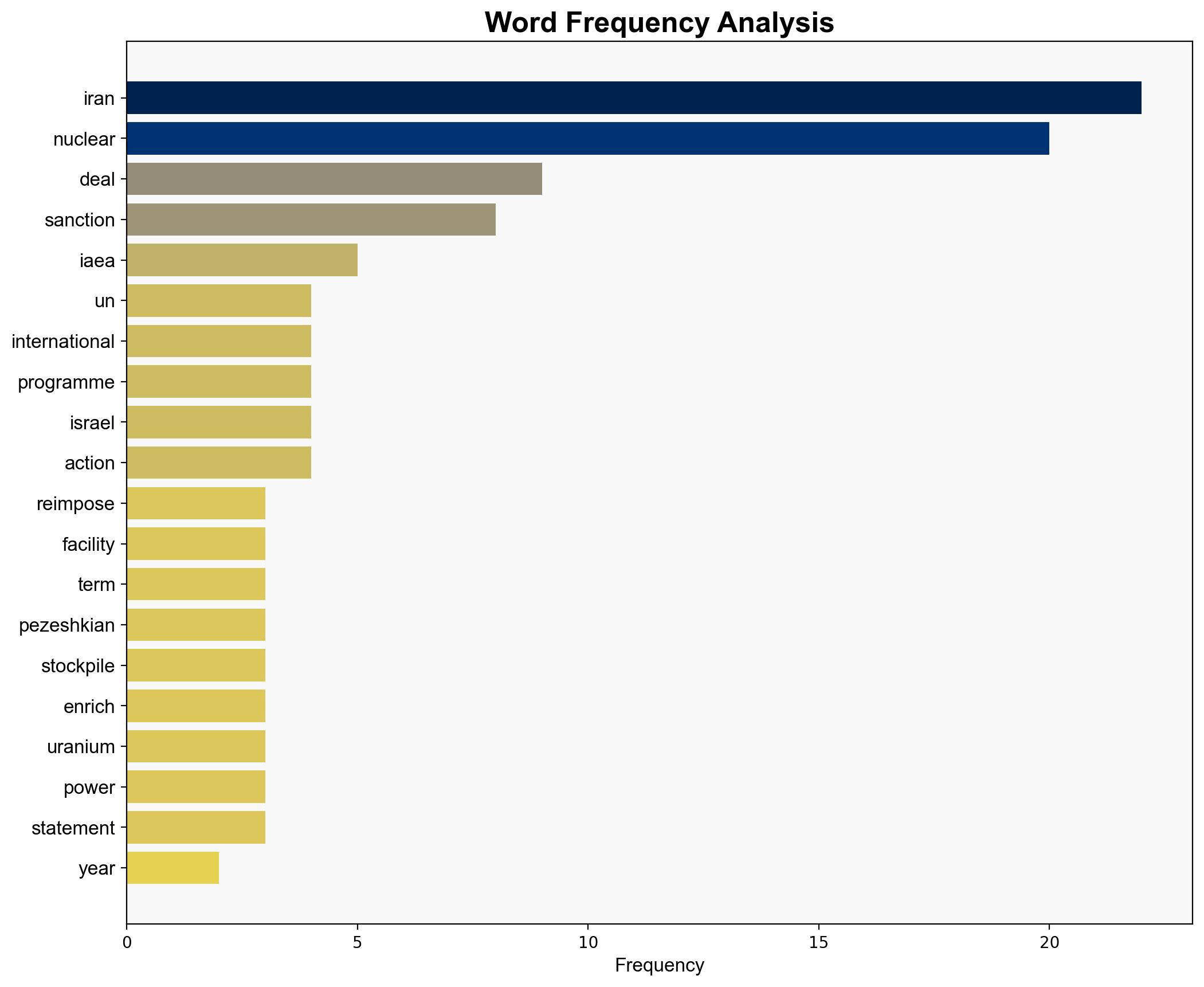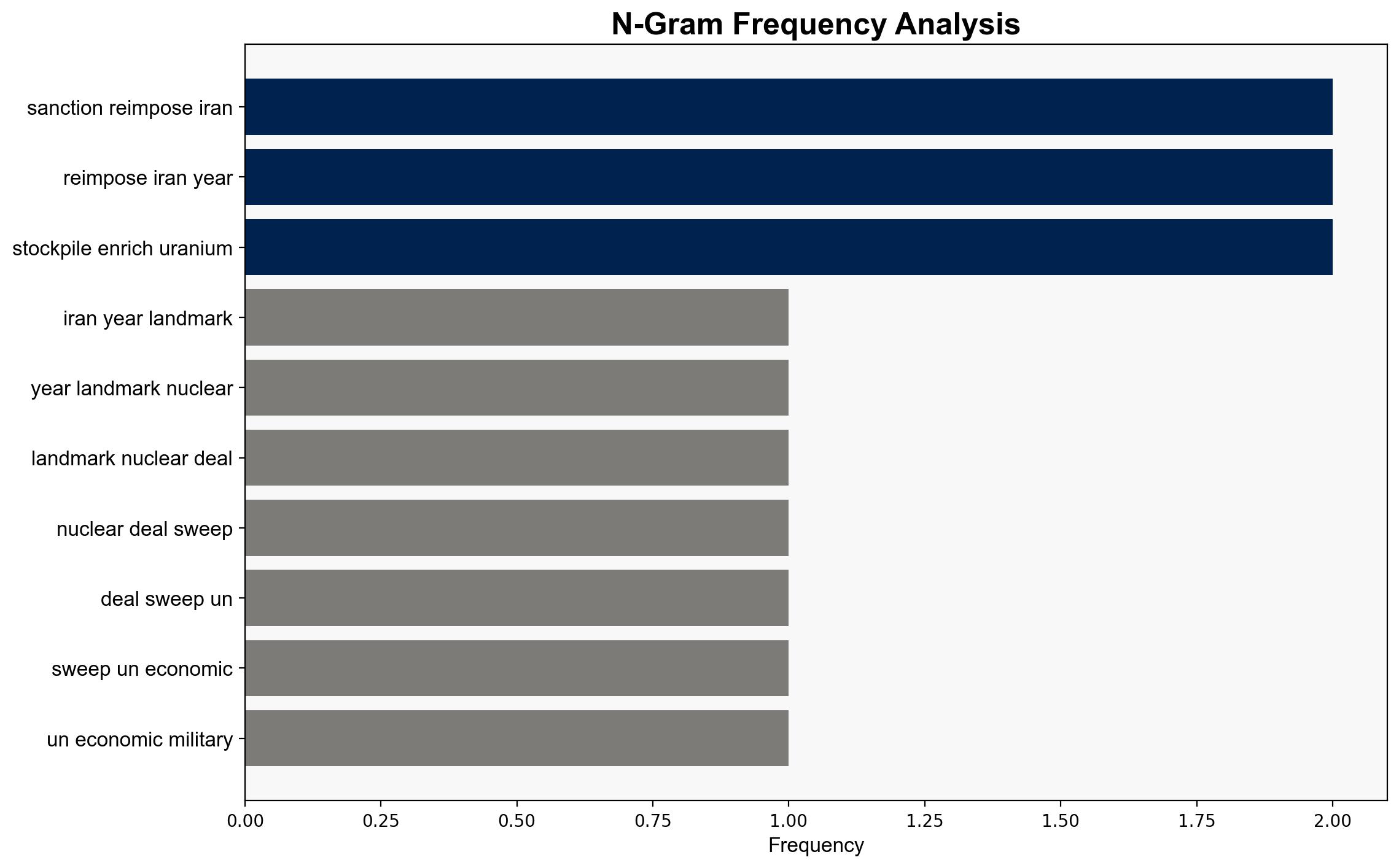UK France and Germany warn Iran as nuclear sanctions resume – BBC News
Published on: 2025-09-28
Intelligence Report: UK France and Germany warn Iran as nuclear sanctions resume – BBC News
1. BLUF (Bottom Line Up Front)
The reimposition of sanctions on Iran by the UK, France, and Germany signals a critical juncture in the JCPOA’s viability. The most supported hypothesis is that Iran will continue its nuclear activities despite sanctions, leading to increased regional tensions. Confidence level: Moderate. Recommended action: Intensify diplomatic efforts to renegotiate terms and involve additional stakeholders to stabilize the situation.
2. Competing Hypotheses
Hypothesis 1: Iran will comply with international demands and curb its nuclear program to avoid further sanctions and diplomatic isolation. This hypothesis assumes Iran values economic stability over nuclear advancement.
Hypothesis 2: Iran will continue its nuclear activities, leveraging them as a bargaining chip to negotiate more favorable terms or gain strategic leverage. This hypothesis considers Iran’s historical resilience against sanctions and its strategic interests in regional power dynamics.
Using ACH 2.0, Hypothesis 2 is better supported due to Iran’s past behavior of non-compliance and its strategic use of nuclear development as a negotiation tool. The lack of immediate economic relief from sanctions also supports this hypothesis.
3. Key Assumptions and Red Flags
Assumptions:
– Hypothesis 1 assumes Iran’s leadership prioritizes economic recovery over nuclear ambitions.
– Hypothesis 2 assumes Iran perceives nuclear capability as essential for regional influence.
Red Flags:
– Iran’s public statements may not reflect actual intentions, indicating potential deception.
– The lack of transparency in Iran’s nuclear activities raises concerns about hidden capabilities.
4. Implications and Strategic Risks
The reimposition of sanctions may lead to:
– Increased regional instability, particularly with Israel’s potential military responses.
– Economic strain on Iran, potentially leading to internal unrest.
– A breakdown in diplomatic relations, reducing the likelihood of future negotiations.
Potential escalation scenarios include military confrontations, cyber-attacks, and further proliferation of nuclear technology.
5. Recommendations and Outlook
- Engage in multilateral diplomacy involving non-European stakeholders to provide a balanced approach to negotiations.
- Enhance intelligence-sharing mechanisms to monitor Iran’s nuclear activities closely.
- Scenario-based projections:
- Best Case: Iran agrees to renegotiated terms, reducing nuclear activities and easing regional tensions.
- Worst Case: Military conflict initiated by Israel or other regional actors, leading to widespread instability.
- Most Likely: Continued diplomatic stalemate with periodic escalations in rhetoric and minor skirmishes.
6. Key Individuals and Entities
– Masoud Pezeshkian
– International Atomic Energy Agency (IAEA)
7. Thematic Tags
national security threats, nuclear proliferation, regional stability, diplomatic negotiations





